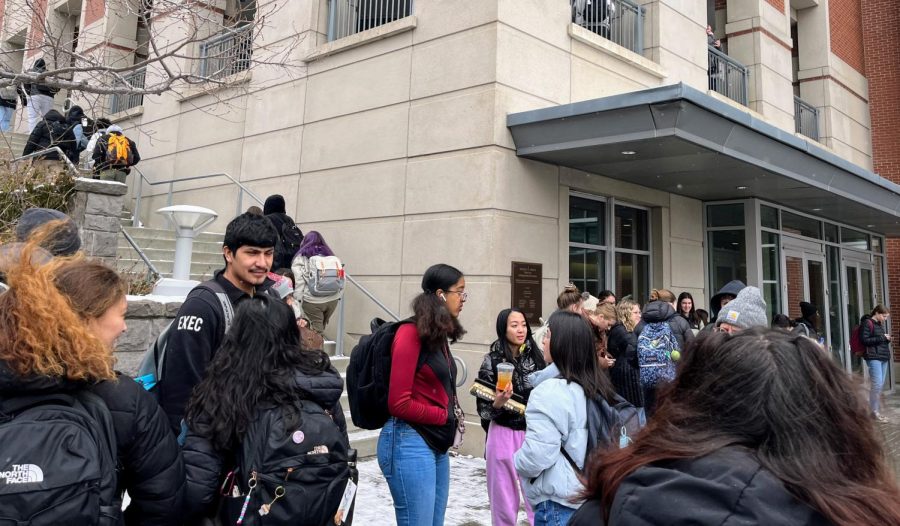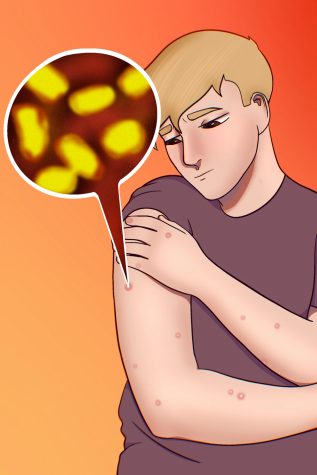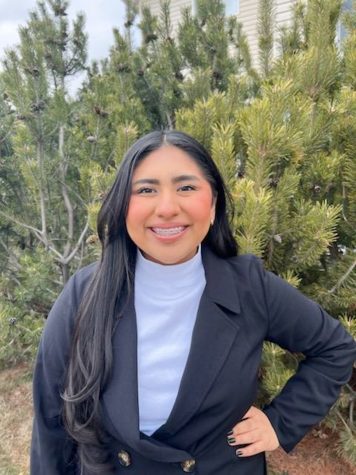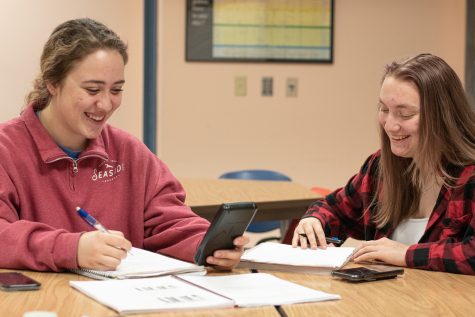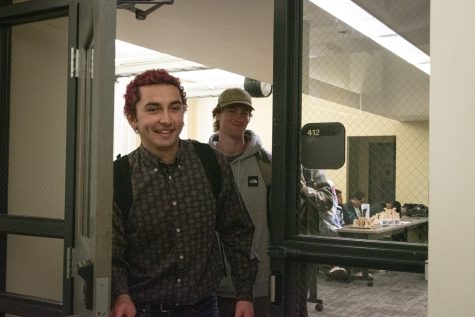COVID-19 vaccines no longer required for WSU students
Certain settings may still require vaccination
Maskless students gathering on campus on Feb. 23, 2023.
February 24, 2023
WSU announced in a press release Jan. 26 that COVID-19 vaccines will no longer be required for students beginning in the summer 2023 semester, although students in certain settings will still need to show proof of vaccination.
Phil Weiler, WSU vice president for marketing and communications, said this decision came after WSU’s Infectious Disease and Public Health Advisory Committee made a recommendation to lift the COVID-19 vaccine requirement.
Weiler said the committee was is made up of representatives with a variety of expertise from across the six WSU campuses.
“We had people who are experts in public health, environmental health, human resources and student services,” he said. “We took a holistic view of where we were with regard to COVID infections on our campuses, particularly in our classrooms and in our residence halls on the Pullman campus.”
Based on that holistic view, it was recommended to President Kirk Schulz that WSU not require additional COVID-19 vaccines because everyone on campus now has already been vaccinated or received an exemption, Weiler said.
Weiler said students involved in medical settings or any settings where vaccinations are still required, will likely still have to provide proof of vaccination.
“For that subset, they’ll need to continue to maintain the requirements for their clinical setting, but for the majority of students, faculty and staff, we will lift those requirements for students starting in the summer session of 2023,” he said.
The COVID-19 vaccine requirement was lifted for WSU faculty and staff in October 2022 after Gov. Jay Inslee suspended his emergency declaration about COVID-19, Weiler said.
Weiler explained that it would be difficult from a record-keeping perspective to keep track of COVID-19 vaccine boosters among students.
“It becomes much more challenging for us to track every individual student and say, ‘How long has it been since your last round of vaccinations? Are you due for your next round of boosters?’” he said.
Weiler said it was easier to keep track of vaccination rates when it was common to only receive one or two rounds of the COVID-19 vaccine. He said it has become more difficult to determine what constitutes as fully vaccinated with the additional boosters.
Weiler said he thinks the pandemic has normalized people staying home when sick, and he encourages students to continue to do so.
Erica Austin, a professor in the strategic communication department and director of the Murrow Center for Media and Health Promotion Research, said she thinks that even though COVID-19 prevention methods are not still in effect, people are still respectful of each other’s wishes when it comes to taking precautions.
“If faculty feel like we need to wear masks to feel safe, people wear masks,” she said. “If students feel we need to wear masks, we wear masks. People I’ve worked with have been very respectful of each other.”
Austin said she thinks people need to have more understanding for one another in general. She said she thinks this correlates to the understanding of different COVID-19 prevention practices.
“I think that there’s an ongoing need for people to broaden their understanding of people who have experiences that are different from their own experiences and situations that are different from their own situations,” she said. “When we spend so much time with people who are like ourselves, it’s not easy to understand people who are not like ourselves. Understand that they may have much more risk of disease, and they may be fearful.”

